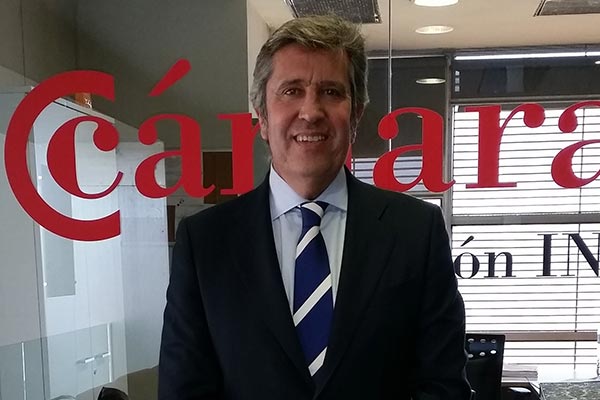
Javier Collado Cortés
Director-General of Fundación INCYDE
“We have to be brave. We have to put brave people in certain jobs. Not technicians, not politicians, but brave people”
What do you think of the mindset of Spain’s entrepreneurs? Is there too much fear of failure?
Young people today are infinitely braver than we were some years ago. We are number one in terms of young projects, such as the International Youth Scientific Congress sponsored by Banco Santander, and we are beginning to realize that—fortunately—our young people are better trained and are less afraid of risk. This is a generation that has lived through a terrible crisis: there are young people who have had a really hard time, who have seen family members lose their jobs. All of these people have been immunized to risk. They know that there are risks, but they also know that these have potential benefits. But we have to teach people to develop a project and we have to tell the truth: not everyone is suited to entrepreneurship. Being an entrepreneur means taking risks and withstanding difficult times. It’s not just about going to the bank to ask for some money.
What country might serve as an example for Spain?
We don’t have to copy any other country. More and more start-ups are being created in Spain. It’s not so much a matter of copying as of education. It is important that people travel, for example. We could create an Erasmus program for students in vocational training. We want to encourage some kind of mobility through business incubators. If only we had the support of the Employment Ministry, of a set of institutions, the European Union. We are members of Spain Startup, which organizes the South Summit. Some fourteen thousand young people attended the last edition, and it is hoped that this figure will be doubled next year. We wanted to do a tour of Spain and other countries. Spain Startup went to the United States, we went to Latin America.
Does the image of the entrepreneur need further promotion?
That’s right: we need to raise the profile of entrepreneurship and the figure of the entrepreneur. We need to learn, observe, garner information on what other people are doing, and transmit the positive elements to others. There is a pilot project for high technology incubators that currently only exists in Spain but may later also be extended to Europe. It constitutes a very fitting environment for entrepreneurs. The incubators that we are going to promote—Madrid’s incubator will be run by the Foundation—will be different in each autonomous region of the country. This means that what gets created in the Community of Valencia will not be repeated in Galicia, and Galician projects won’t be happening in Andalusia, and so on. What we want to do is create a set of buildings to house health sciences, for example, so that all technologies related to skin substitutes can find their place in this infrastructure. And where there are also twenty entrepreneurs at work.
What do you think of Spanish entrepreneurs in an international context?
Spanish entrepreneurs doing business on an international level tend to get there by means of a start-up or an app, which sell very well. The best designers in the world of digital leisure are young Spaniards. But what happens is that the game is then manufactured in the United States. Why don’t we help them or convince them to bring their investment over here? That would be a very important strategy for our country. Everything is much more boring in Silicon Valley. If they let me, I could set up a Silicon Valley in Spain in ten years. But we have to be brave. We have to put brave people in certain jobs. Not technicians, not politicians, but brave people.
